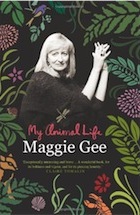Why writers are becoming extinct
 The Authors’ Licensing and Collecting Society recently did a survery of writers’ earnings and discovered the median income of British professional writers is now £11,000, down from £15,540 in 2005. I am not surprised by the drop in earnings: writers are earning less per sale than in the past. Amazon slashes prices and this in turn slashes a writer’s income. Discounts have never been greater. The writer, who has produced the book, gets the smallest slice of the cake. Most writers do other things, too: teaching, editing, journalism. I was membership secretary of the CWA for a while.
The Authors’ Licensing and Collecting Society recently did a survery of writers’ earnings and discovered the median income of British professional writers is now £11,000, down from £15,540 in 2005. I am not surprised by the drop in earnings: writers are earning less per sale than in the past. Amazon slashes prices and this in turn slashes a writer’s income. Discounts have never been greater. The writer, who has produced the book, gets the smallest slice of the cake. Most writers do other things, too: teaching, editing, journalism. I was membership secretary of the CWA for a while.
I have been brooding about the changing fortunes of writers ever since I read Maggie Gee’s first-rate memoir, My Animal Life, in which she is admirably frank about the vicissitudes of her life as a writer. She was dropped by her publisher in mid-career. Later she was dropped by her agent, too. She made it back, but by the skin of her teeth. She describes the changes that she has seen in publishing. ‘As giant firms sucked up the independents, they aimed to sell more copies of fewer books . . . perfectly respected and serious publishers talked proudly about “the death of the mid-list”, to show they too were out there, swimming with sharks; but really they were just making sad boasts about the loss of variety and interest.’
‘The death of the midlist:’ that is, of all those many, many worthwhile books that are not among the best-sellers. It is a sad prospect. Not to mention the fact that many of today’s best-sellers started out as mid-list writers and wouldn’t have been best-sellers if publishers hadn’t believed in them and given them time to succeed. It’s true that it’s never been easier to self-publish, but at the same time it’s never been harder to get a start with a decent publisher.
4 Comments
Lyn
November 11, 2014One example that always springs to mind when I think of the death of the mid-list is Peter Robinson. His 10th book (I think), In A Dry Season, was the one that made him a bestseller. That’s when I discovered him & then rushed to read all the previous books in the series. What would have happened to his career if his publishers had dropped him after only a couple of books? I remember his early books were published by one of those terrific series that mainly sold to libraries like the Collins Crime Club. They don’t exist anymore either. Not everyone wants to read just the latest books either. That’s where libraries can be such a great resource, holding on to books that have gone out of print (of course, I’m biased!).
Christine Poulson
November 12, 2014I believe it took a few novels for Ian Rankin to get into his stride, too. I know so many writers who have been dropped by their publishers, when in the past they would have been given more of a chance to make their name – though actually some of them were already well-known. Their sales weren’t deemed to be good enough.I was dropped by St Martin’s Press – and later by an agent, too. That really is the kiss of death!
Martin Edwards
November 17, 2014This is a perenially interesting topic. A long list of our most popular writers – not just Peter and Ian, but also Val McDermid, Andrew Taylor and Ann Cleeves among many others took a long time to establish themselves in the top tier. Nowadays,, some excellent younger writers are disappearing after only two or three books.
Christine Poulson
November 17, 2014Good to hear from you, Martin. Yes, this is a sad state of affairs. But at the same time it is easier than ever to self-publish. I am going to a Society of Authors panel on traditional publishing versus self-publishing, which should be interesting.